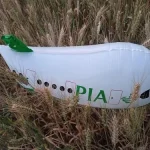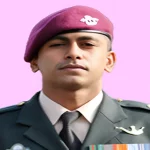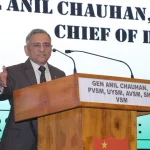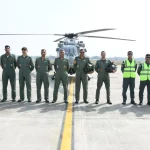For former President A.P.J. Abdul Kalam, becoming a fighter pilot was a “dearest dream” but he failed to realise it by a whisker as he bagged the ninth position when only eight slots were available in the IAF.
In his new book “My Journey: Transforming Dreams into Actions”, published by Rupa, Mr. Kalam, who specialised in aeronautical engineering from Madras Institute of Technology, says he was desperate to pursue a career in flying.
“Over the years I had nurtured the hope to be able to fly to handle a machine as it rose higher and higher in the stratosphere was my dearest dream,” he writes.
Out of the two interview calls Mr. Kalam got, one was from the Indian Air Force in Dehradun and the other from the Directorate of Technical Development and Production (DTDP) at the Ministry of Defence in Delhi.
While the interview at DTDP was “easy” he recounted that for the Air Force Selection Board, he realised that along with qualifications and engineering knowledge, they were also looking for a certain kind of “smartness” in the candidate.
To crack the AFSB and SSB interview, we recommend you to get “Let’s Crack SSB Interview” book from Amazon.
Download eBooks:
Mr. Kalam bagged the ninth position out of 25 candidates and was not recruited as only eight slots were available.
“I had failed to realise my dream of becoming an air force pilot,” he writes.
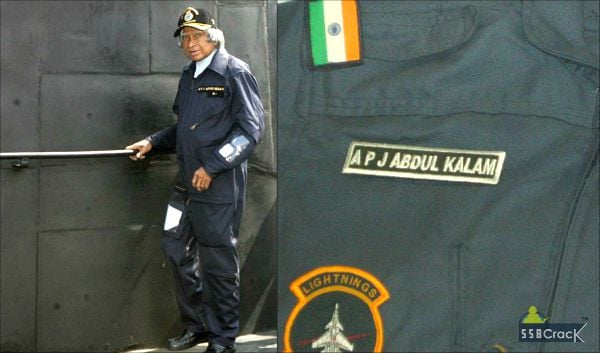
He says he “walked around for a while till I reached the edge of a cliff” before deciding to go to Rishikesh and “seek a new way forward.”
“It is only when we are faced with failure do we realise that these resources were always there within us. We only need to find them and move on with our lives,” says Mr. Kalam who went on to put his “heart and soul” at his job as the senior scientific assistant at DTDP.
The book is filled with stories of “innumerable challenges and learning” in his years as the scientific adviser when India conducted its second nuclear test, his retirement and dedication to teaching thereafter and his years as President.
Mr. Kalam has compiled life’s learnings, anecdotes and profiles of key moments and people who inspired him profoundly in the book, which will hits the stands on August 20.
He recounts “staring into the pit of despair” when he failed to make it as an IAF pilot and how he pulled himself up and rose to become the man who headed India’s missile programme and occupy highest office in the country.
While the 82-year-old, popularly known as the Missile Man for his contribution to the development of ballistic missile technology, had in 1999 brought out his autobiography “Wings of Fire” and followed it with “Turning Points”, a journey through challenges” in 2012 that details his political career and challenges, the latest book talks about the people who left a deep impression on him as he was growing up.
In the 147-page book, Mr. Kalam writes about his experience of watching his father build a boat, his early working life as a newspaper boy at the age of eight and even his first-hand experience of the way in their religious elders settled a religious matter in his school.
In a chapter “A brush with fire”, Mr. Kalam recounts the 1999 January 11 incident involving two aircraft which took off from Bangalore towards the Arakkonam-Chennai coastline and crashed, killing 8 men on board.
While Mr. Kalam immediately flew to Bangalore from Delhi and met the bereaved families, he says the grief of the devastated parents and the wailing of the infants remained with him even after years of the incident even after he moved from his office at South Block to Rashtrapati Bhavan.
The former President says that true nation building is not made by political rhetoric alone but should be backed “by the power of sacrifice, toil and virtue”.
“When grand plans for scientific and defence technologies are made, do the people in power think about the sacrifices the people in the laboratories and fields have to make?” he writes.
The book also contains a chapter detailing Mr. Kalam’s favourite books “which have always been close companions” who “were like friends” guiding him through life. Lilian Eishler Watson’s “Light from Many Lamps,” the “Thirukural”, Nobel Laureate Alex Carrel’s “Man the Unknown” have been listed.
Poetry says Mr. Kalam has been “one of his first loves” and poems by T.S. Elliot, Lewis Carroll and William Butler Yeats has “played out in my over and over again”.
In conclusion, Mr. Kalam writes his life can be summed up as “Love poured to the child… struggle… more struggle… bitter tears… then sweet tears… and finally a life as beautiful and fulfilling as seeing the birth of the full moon.
“I hope these stories will help all my readers understand their dreams and compel them to work on these dreams that keep them awake,” he writes.
To crack the AFSB and SSB interview, we recommend you to get “Let’s Crack SSB Interview” book from Amazon.
Download eBooks:









